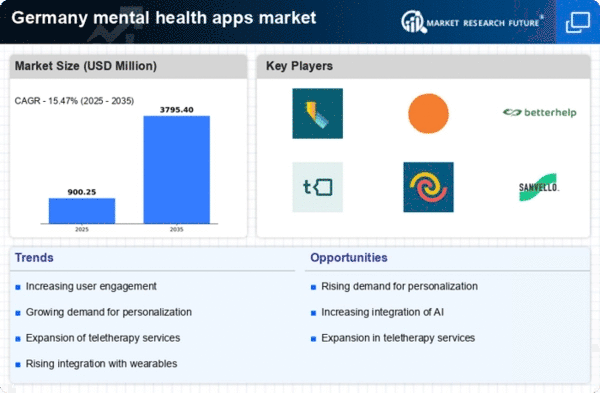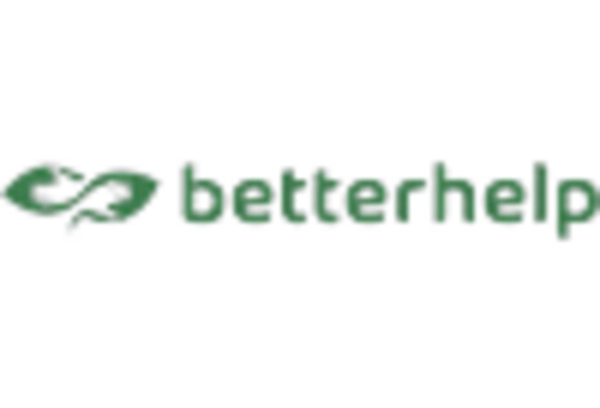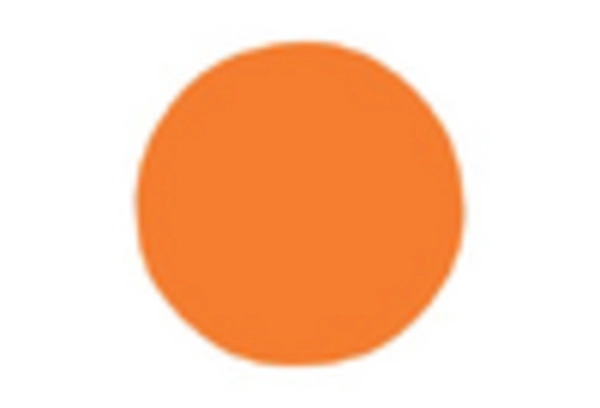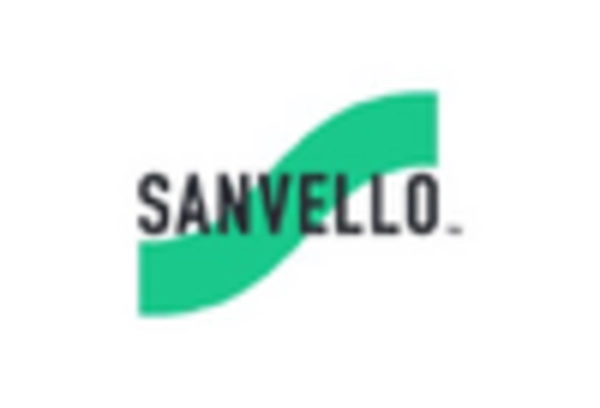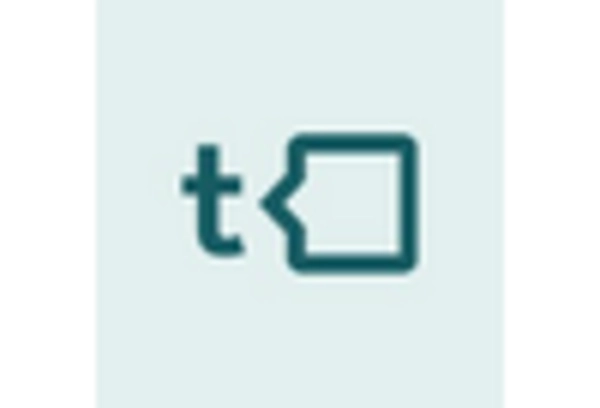Rising Mental Health Awareness
The increasing awareness surrounding mental health issues in Germany is a pivotal driver for the mental health-apps market. As societal stigma diminishes, more individuals are seeking help for mental health conditions. Reports indicate that approximately 30% of the German population acknowledges experiencing mental health challenges, leading to a surge in demand for accessible solutions. This heightened awareness encourages the development and adoption of mental health applications, as users look for convenient and private ways to manage their mental well-being. Furthermore, educational campaigns and initiatives by health organizations are likely to bolster this trend, promoting the use of technology in mental health care. Consequently, the mental health-apps market is positioned to expand significantly as more users recognize the importance of mental health and seek digital tools to support their needs.
Government Support and Regulation
Government initiatives and regulatory frameworks are increasingly influencing the mental health-apps market in Germany. The German government has recognized the importance of mental health and is actively promoting digital health solutions. For example, the Digital Healthcare Act encourages the use of digital health applications, providing reimbursement options for users. This policy is likely to enhance the credibility and adoption of mental health apps, as users may feel more secure knowing that these tools are supported by governmental standards. Additionally, regulatory bodies are establishing guidelines to ensure the safety and efficacy of mental health applications, which could further instill confidence among users. As a result, the mental health-apps market is expected to experience growth driven by supportive government policies and a structured regulatory environment.
Integration of Community Support Features
The integration of community support features within mental health applications is becoming a notable trend. Users increasingly seek connection and support from peers who share similar experiences. In Germany, applications that facilitate community engagement, such as forums and support groups, are likely to enhance user experience and retention. This social aspect can provide users with a sense of belonging and reduce feelings of isolation, which are common in mental health struggles. Furthermore, community-driven features may encourage users to share their journeys, fostering a supportive environment. As the demand for social connectivity in mental health care grows, the mental health-apps market is expected to adapt by incorporating these community elements, potentially leading to increased user engagement and satisfaction.
Technological Advancements in App Development
Technological advancements play a crucial role in shaping the mental health-apps market. Innovations in artificial intelligence (AI), machine learning, and data analytics are enhancing the functionality and user experience of mental health applications. For instance, AI-driven chatbots can provide immediate support and resources, making mental health care more accessible. In Germany, the integration of these technologies is expected to increase user satisfaction and engagement, potentially leading to a market growth rate of around 15% annually. Moreover, the development of personalized features, such as tailored content and progress tracking, is likely to attract a broader user base. As technology continues to evolve, the mental health-apps market is poised to benefit from these advancements, offering users more effective and engaging solutions for their mental health needs.
Increased Focus on Preventive Mental Health Care
The shift towards preventive mental health care is emerging as a significant driver for the mental health-apps market. In Germany, there is a growing recognition of the importance of early intervention and preventive measures in mental health. This trend is reflected in the increasing number of individuals seeking mental health resources before crises occur. Mental health applications that offer tools for stress management, mindfulness, and emotional regulation are gaining traction as users prioritize proactive mental health care. Research suggests that preventive approaches can reduce the long-term costs associated with mental health treatment, making these apps an attractive option for both users and healthcare providers. Consequently, the mental health-apps market is likely to expand as more individuals embrace preventive strategies to maintain their mental well-being.


